How Tommy Lee Jones’ ‘Fugitive’ Performance Anchored One of the Best Oscar Races of All Time
- Oops!Something went wrong.Please try again later.
- Oops!Something went wrong.Please try again later.
- Oops!Something went wrong.Please try again later.
- Oops!Something went wrong.Please try again later.
- Oops!Something went wrong.Please try again later.

In the vast tapestry of Oscar history, specific years define instants of talents converging to produce a constellation of extraordinary performances. 1993 was one such epoch when the best supporting actor lineup at the 66th Academy Awards ceremony showcased an assembly of unparalleled depth. The roster included Leonardo DiCaprio for “What’s Eating Gilbert Grape,” Ralph Fiennes for “Schindler’s List,” John Malkovich for “In the Line of Fire,” Pete Postlethwaite for “In the Name of the Father,” and ultimate victor, Tommy Lee Jones for “The Fugitive.”
Looking back on the 30th anniversary of Warner Bros’ taut thriller, “The Fugitive” from director Andrew Davis, Variety reflects on how Jones’ win anchored one of the single best Oscar lineups of all time.
More from Variety
Each nominated actor found themselves in unique career positions and created unforgettable characters that have left indelible marks in cinema. Any of them could have won the category and would stand tall as one of the premier winners in the category’s history.
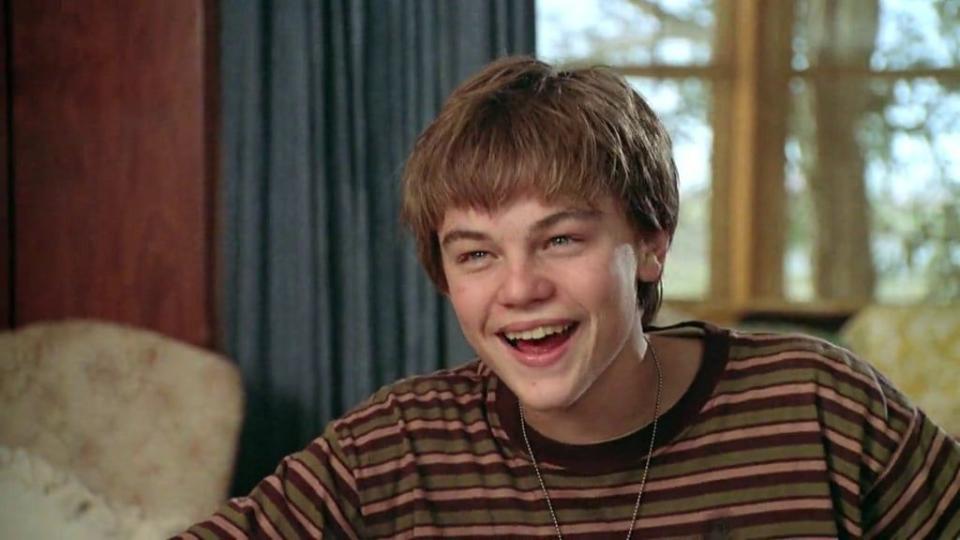
Pre-Titanic Leonardo DiCaprio breaks out.
In 1993, the young DiCaprio, then 19, was coming off his 23-episode stint as the homeless teenager Luke Brower on TV’s “Growing Pains” and his first biopic role in “This Boy’s Life” as a young Tobias Wolff, who his stepfather abuses in the 1950s.
In Lasse Hallström’s coming-of-age drama, he played Arnie Grape, an intellectually disabled teenager, demonstrating the promise of the star becoming one of the finest actors of his generation. Opposite Johnny Depp, Juliette Lewis, and an Oscar-snubbed Darlene Cates, he brings authenticity to a role that could have ended a career in the wrong hands. But his bright eyes and pure innocence captured the hearts of many, including iconic film critic Roger Ebert who said, “DiCaprio deserved to win the Academy Award.” He sits in the No. 8 slot on the list of youngest supporting actor nominees in history.
It’s also fascinating to see how his performance has stood the test of time, especially for an actor not from the disability community. If you look at someone like Sean Penn from “I Am Sam” (2001), an Oscar-nominated turn that is harshly criticized today. DiCaprio has managed to stay above such ridicule, at least on a large scale.
It would be a few more years before the Los Angeles-born actor would be declared a box office magnet (“Grape” was a “bomb”), leading him to a tiny juggernaut called “Titanic” (1997).
Nonetheless, with help from the words of “What’s Eating Gilbert Grape” author Peter Hedges, who adapted his novel, this flick remains an astonishing early work from one of our most revered performers.
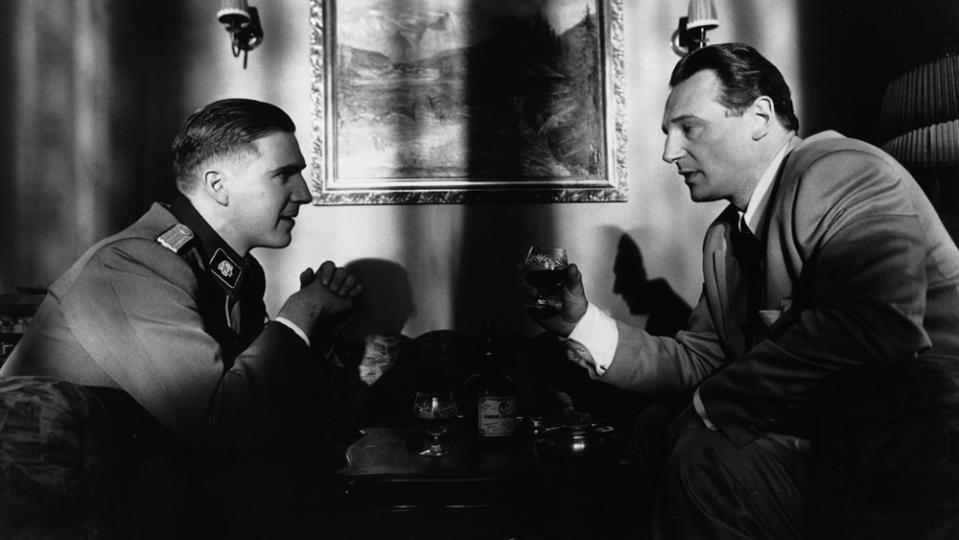
Ralph Fiennes brings true evil to life.
Director Steven Spielberg’s deeply personal Holocaust drama was one of the surest Oscar victors in history. Among its 12 nominations was a relatively unknown Ralph Fiennes as Amon Göth, an Austrian Nazi commander and a physical manifestation of pure evil. In what would be the first of many excellent villain roles for Fiennes — such as Voldemort in the “Harry Potter” movies — his cold stare can show the void of empathy within the real-life figure.
Fiennes’ work is one of the examples I often give for roles that are “too evil” to win Oscars (i.e. Michael Fassbender in “12 Years a Slave”). It might have been impossible for voters to check his name off, almost feeling like they would be rewarding Amon himself. Nonetheless, his haunting portrait sits comfortably on my personal list of the greatest performances of all time. An expertly chilling malevolence that doesn’t only rely on monstrous imagery. Instead, Fiennes surrenders in a manner that very few actors are willing to do to achieve their transformations.
It’s also one of three best picture winners that Fiennes has starred in, followed by “The English Patient” (1996) and “The Hurt Locker” (2009). “Schindler” remains his most vital.
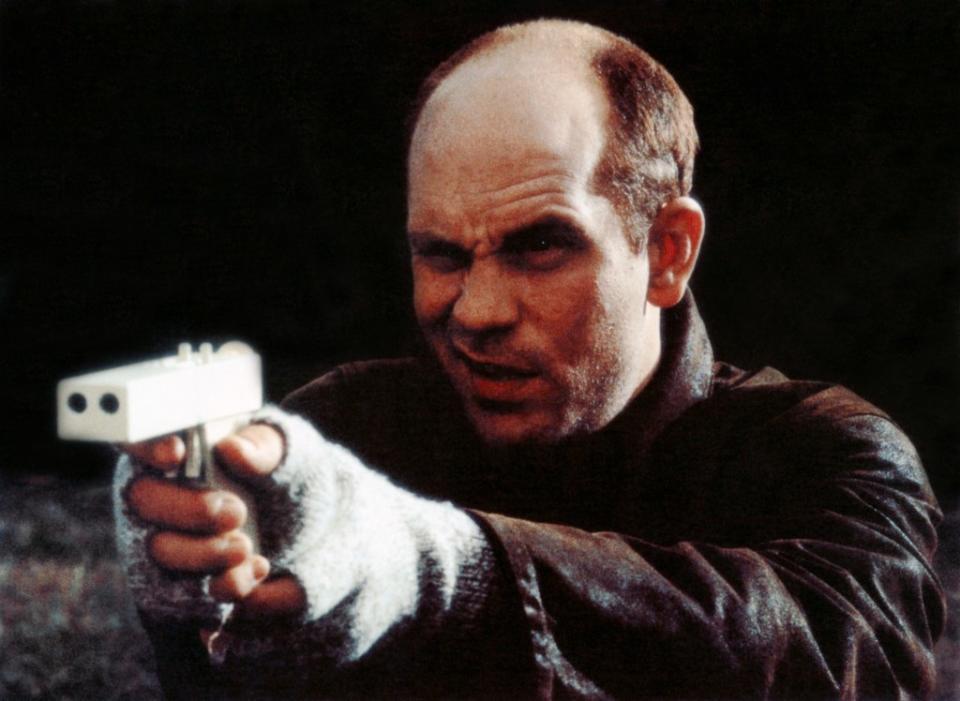
John Malkovich is a smooth phone operator.
In the political thriller “In the Line of Fire,” John Malkovich’s Booth (a.k.a. James Carney, a.k.a. Mitch Leary) is a man with many talents: a modern-day MacGyver who can build a gun out of plastic, an exceptional self-makeup and hair stylist, and a fantastic phone conversationalist. His only flaw is he wants to assassinate the President of the United States.
Considered one of the quintessential definitions of a true thespian, Malkovich brings an alarming demeanor that slithers throughout the taut thriller that keeps you at the edge of your seat. His surprise chemistry with Clint Eastwood infuses the cunning and restrained menace that bubbles within the former CIA agent. Warmly accompanied by two other clutch Oscar noms for original screenplay (Jeff Maguire) and film editing (Anne V. Coates), it’s hard to believe Malkovich has only been nominated twice — the other was for “Places of the Heart” (1984) — and he hasn’t been invited back to the ceremony (as of 2023).
Don’t be afraid to change that, Academy.
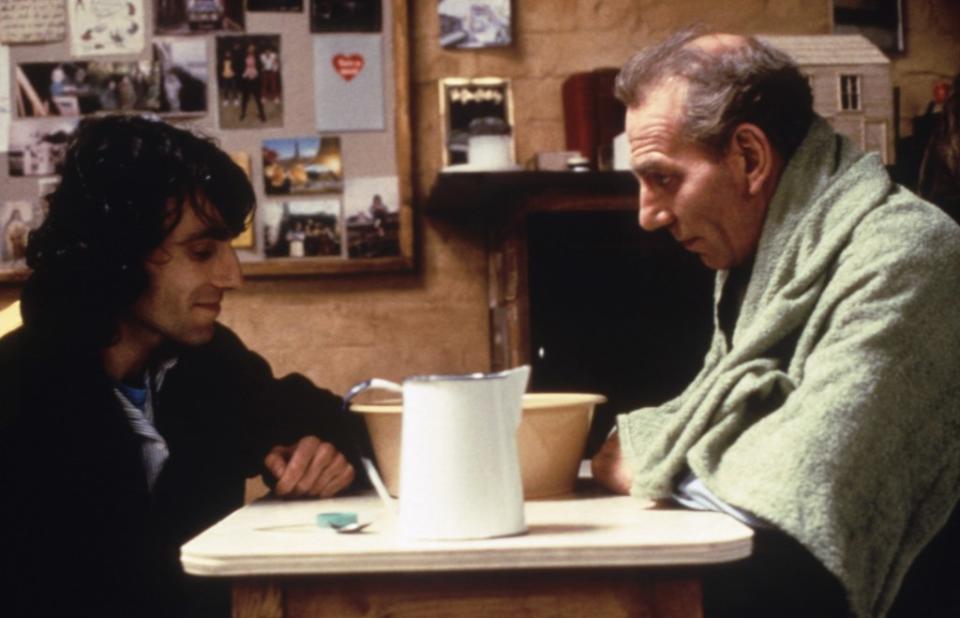
Pete Postlethwaite was the original Irishman.
In a 2000 Guardian article, Spielberg called Postlethwaite “the best actor in the world.” Hard to argue when you watch his fiery depiction of Giuseppe Conlon, a falsely accused Irish man who is wrongfully imprisoned in Jim Sheridan’s profoundly moving “In the Name of the Father,” which was nominated for seven statuettes.
Alongside two other revered actors, Daniel Day-Lewis and Emma Thompson, Giuseppe is brought to life not relying solely on histrionics or melodrama, instead, focusing on a restrained approach that allows quiet moments of sorrow to evoke the subtle nuances that got him the Oscar nod without a single mention from any other precursors or awards groups.
A fun fact, he would eventually share the screen with two of his fellow nominees in two projects each — with DiCaprio in Luhrmann’s “Romeo + Juliet” (1996) and Christopher Nolan’s “Inception” (2010), followed by Fiennes in “The Constant Gardener” (2005) and “Clash of the Titans” (2010).
Sadly, he’s the only nominee of the category (as of 2023) who’s no longer with us, and 12 years without the English character actor’s presence has had cinema feel his absence. His legacy lives on.
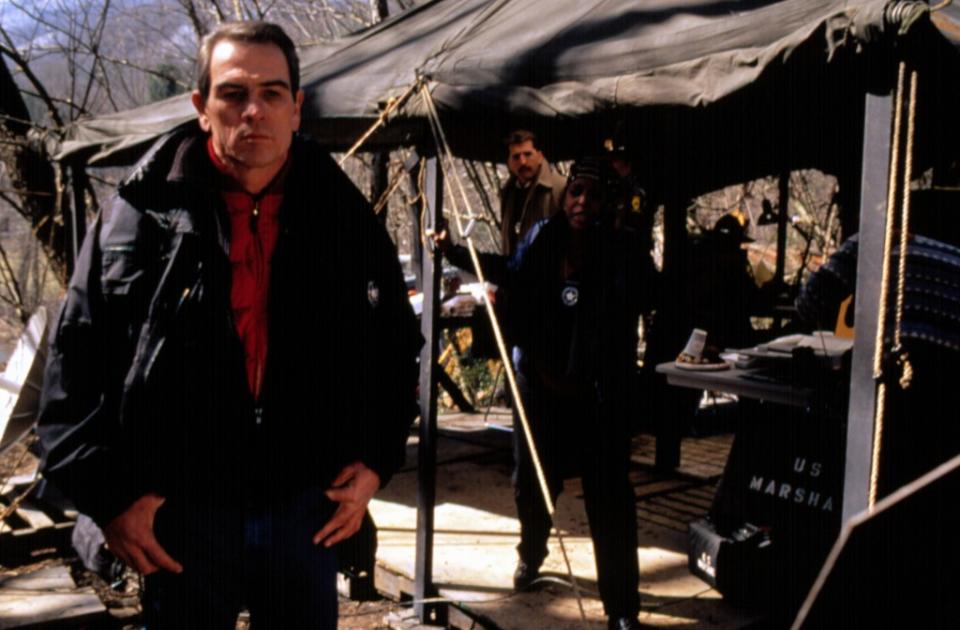
Tommy Lee Jones said, “I don’t care,” and we loved him for it.
Scene-stealer isn’t a good enough trait to accurately describe what Tommy Lee Jones is in Andrew Davis’ unyielding thrill ride.
Opposite Harrison Ford, a more than worthy best actor candidate that unfortunately was overlooked, Jones plays U.S. Marshal Samuel Gerard, who hunts down Richard Kimble (Ford) following a bus crash. His magnetic presence and sharp wit are vital elements with memorable one-line zingers.
He makes the marching orders to his officers at the crash site feel almost rhythmic — “a hard-target search of every gas station, residence, warehouse, farmhouse, henhouse, outhouse and doghouse in that area.”
And of course, in the action-packed chase through the sewer tunnels where Kimble tells Gerard he didn’t kill his wife, Jones’ vapid face and the quippy response of “I don’t care” generated chuckles in my movie theater, a core memory embedded in my 9-year-old mind at the time.
At the 1997 ceremony, “The Fugitive” was nominated for seven Oscars after being a box office sensation – best picture (Arnold Kopelson), cinematography (Michael Chapman), film editing (Dennis Virkler, David Finfer, Dean Goodhill, Don Brochu, Richard Nord and Dov Hoenig), sound (Donald O. Mitchell, Michael Herbick, Frank A. Montaño and Scott D. Smith), sound effects editing (John Leveque and Bruce Stambler), original score (James Newton Howard) and supporting actor, the sole win for the film.
With the added feeling the Academy “owed” Jones after he lost the Oscar two years prior for “JFK” (1991) to Jack Palance for “City Slickers,” voters clearly love Jones, with two more nods following — “In the Valley of Elah” (2007) and “Lincoln” (2012).
As time marches on, the impact of these acts only grows stronger. Their resonance lies in their cinematic brilliance and the inspiration they provide for aspiring actors. The Oscar class of ’94 reminds us that acting is an art form that has the power to change lives and transcend generations. The legacy continues to endure, 30 years later, on the silver screen.
Best of Variety
Sign up for Variety’s Newsletter. For the latest news, follow us on Facebook, Twitter, and Instagram.

